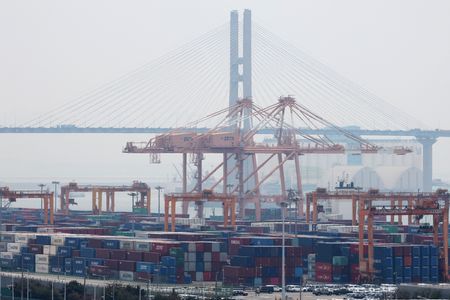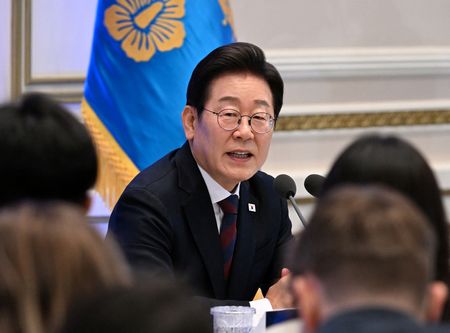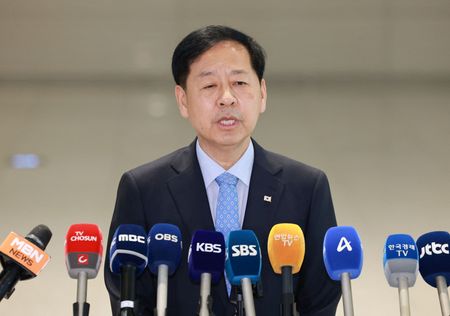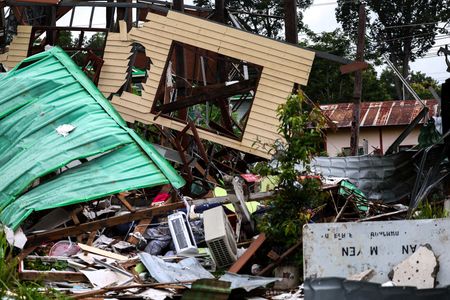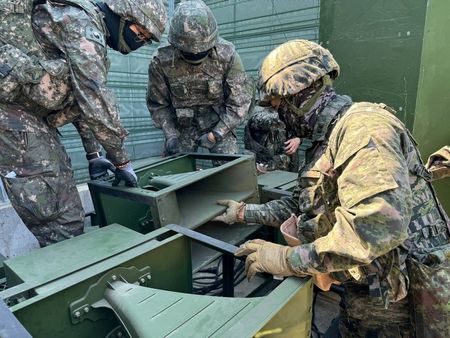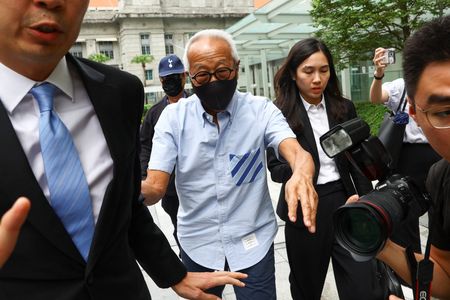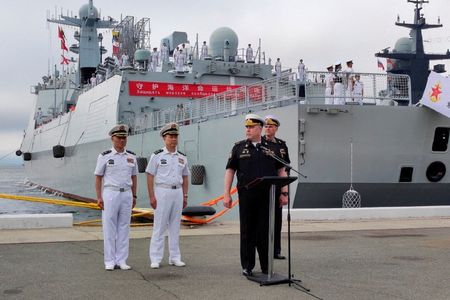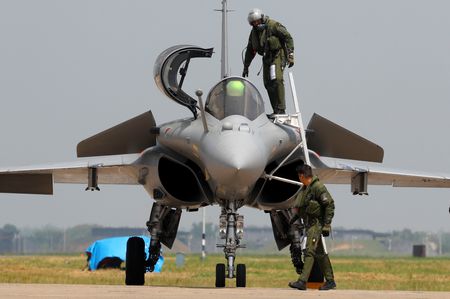By Hyunjoo Jin and Jihoon Lee
SEOUL (Reuters) -As South Korea and the United States prepare for a summit of their leaders, topics left unresolved by a recent trade deal provide scope for more disputes between the key allies and trade partners, six former negotiators and experts said.
President Donald Trump may use the summit with counterpart Lee Jae Myung to seek more concessions on defence costs and corporate investments, left out of the deal, while non-tariff barriers and currency could prove thorny issues, experts said.
No official summit date has been disclosed, though Trump last week gave a timeframe of two weeks.
The absence of a written agreement underpinning last week’s talks could open the way for disputes, with some differences already emerging in the two sides’ accounts of the deal.
Key among these was Sunday’s denial by a South Korean presidential adviser of U.S. claims that it would take 90% of the profit from project investments of $350 billion by South Korea, which also agreed to open up its domestic rice market.
“Even a binding deal like the FTA has been efficiently scrapped,” warned Choi Seok-young, a former chief negotiator for the Korea-U.S. free trade deal, signed in 2007. “And this is just promise.”
Last week’s pact was scaled down from South Korea’s previous plans for a package deal on trade, security and investment envisioned in the run-up to the summit between Trump and the newly-elected Lee.
But Japan struck a deal with the United States sooner than expected, spurring South Korea into a scramble for a trade-focused pact, leaving issues of security and investment for the coming summit, presidential adviser Kim Yong-beom said.
Uncertainty clouds plans for $350 billion in funds Trump has said South Korea would invest in the United States in projects “owned and controlled by the United States” and selected by him, though he gave few details of the plan’s structure or timing.
The allies face challenges in ironing out details of the fund at upcoming working-level talks, South Korean Finance Minister Koo Yun-cheol told reporters on Friday.
“People say the devil is in the details,” he added.
In a social media post, Commerce Secretary Howard Lutnick gave an assurance of “90% of the profits going to the American people”, while White House spokesperson Karoline Leavitt said part would go to the U.S. government to help repay debt.
But Kim, the presidential adviser, said the two sides did not discuss profit distribution during talks, and South Korea expected the profit to be “reinvested” in the United States.
‘POLITICAL RHETORIC’
The idea of the United States potentially taking most of the profit is “hard to understand in a civilised country”, he added, while dismissing as “political rhetoric” Washington’s claim that it would make all decisions about the fund.
South Korea had added a safety mechanism to reduce financing risk, including U.S. commitments to buy products from the projects, under an “offtake” clause and invest in commercially feasible projects, he said.
Seoul officials have said $150 billion would go to the shipbuilding industry, with the rest earmarked for areas such as chips, batteries, critical minerals, biotechnology, nuclear power and other strategic industries.
The specifics of the structure have not been determined, said Kim, adding that loans and guarantees make up a majority of the funds, with equity investments accounting for a small part.
Leavitt said South Korea would provide “historic market access to American goods like autos and rice,” echoing earlier comments by Trump.
But South Korea said repeatedly there had been no agreement on the agriculture market, including beef and rice, despite strong pressure from Washington.
Trump expressed keen interest in Korea’s quarantine process for fruits and vegetables, Seoul said, improvements to which will figure in planned technical talks on non-tariff barriers that will also cover vehicle safety rules, but gave no details.
Other non-tariff barriers such as regulation of Big Tech could be hurdles.
“We cannot be relieved because we do not know when we will face pressure from tariffs or non-tariff measures again,” Trade Minister Yeo Han-koo said last week on returning from Washington.
Defence costs are expected to emerge as a key issue during the upcoming summit, with Trump having long said South Korea needed to pay more for the U.S. troop presence there.
In addition to the $350 billion, Trump said South Korea agreed to invest a large sum of money in the United States, to be announced during the summit, which he said on July 30 would be held within two weeks.
The allies are holding working level-talks on currency policy, put on the agenda at April’s opening round of trade talks.
(Reporting by Hyunjoo Jin and Jihoon Lee; Editing by Clarence Fernandez)

